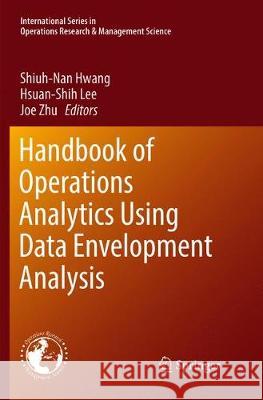Handbook of Operations Analytics Using Data Envelopment Analysis » książka
topmenu
Handbook of Operations Analytics Using Data Envelopment Analysis
ISBN-13: 9781493979554 / Angielski / Miękka / 2018 / 506 str.
Kategorie:
Kategorie BISAC:
Wydawca:
Springer
Seria wydawnicza:
Język:
Angielski
ISBN-13:
9781493979554
Rok wydania:
2018
Wydanie:
Softcover Repri
Ilość stron:
506
Oprawa:
Miękka
Wolumenów:
01











